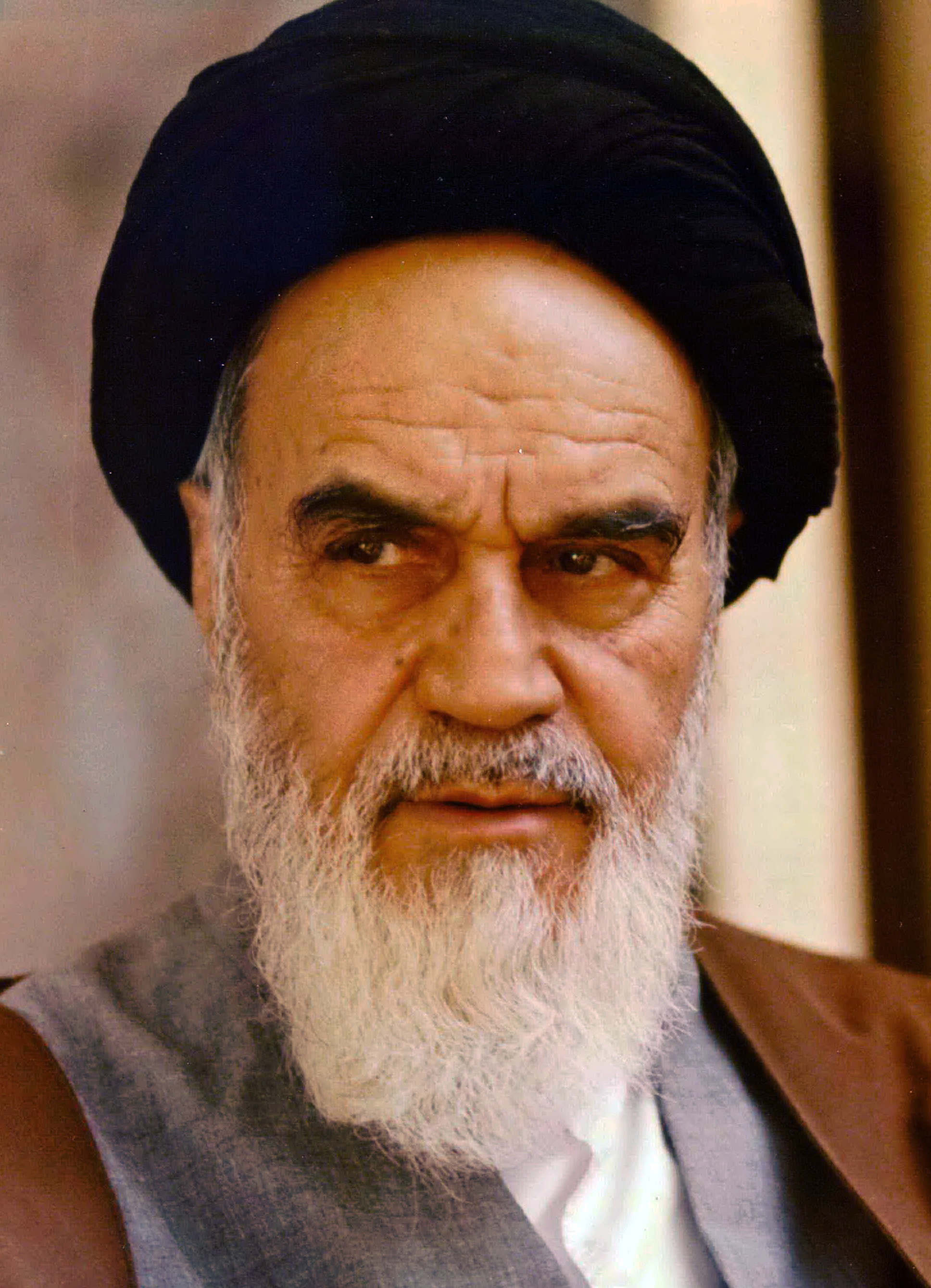Clive Foss, The Tyrants: 2500 Years of Absolute Power and Corruption, London: Quercus Publishing, 2006, ISBN 1905204965, p. 195
Attributed
Chomejní: Citáty v angličtine
Letter to Russian Premier Gorbachev, January 1989. http://politicalquotes.org/node/68478
Foreign policy
Addressing an audience of Iranian industry workers and inventors (October 1983); quoted in "Imam's Sahife" vol. 18 p. 189,190.
Foreign policy
Imam's Sahife. vol. 16, p. 349,350. (21 June 1982)
Foreign policy
“This regime occupying Jerusalem must vanish from the page of time.”
Just How Far Did They Go, Those Words Against Israel?, The New York Times, June 11, 2006, 2007-08-13 http://www.nytimes.com/2006/06/11/weekinreview/11bronner.html?ex=1307678400&en=efa2bd266224e880&ei=5088&partner=rssnyt&emc=rss,
Foreign policy
Response to Shah Mohammad Reza Pahlavi's announcement of elections (August 1978); quoted in "The Shah's Divided Land" (18 September 1978) Time
Foreign policy
"Imam's Sahife" vol. 4 p. 244 (1 November 1978).
Foreign policy
“In the Islamic government all people have complete freedom to have any kind of opinion.”
Foreign policy
Zdroj: Interview with Human Rights Watch, Paris (10 November 1978)
Imam's Sahife. vol. 18, p. 241. (11 December 1983)
Foreign policy
Tahrir al-Vasileh, 1970. http://politicalquotes.org/node/54102
Foreign policy
Speech at Behesht Zahra cemetery (1 February 1979), condemning the government of Shapour Bakhtiar
As quoted in Nest of Spies : America's Journey to Disaster in Iran (1989) by Amir Taheri, p. 269. Disputed by historian Shaul Bakhash.
Disputed
“All those against the revolution must disappear and quickly be executed.”
Quoted by dissident cleric Hossein-Ali Montazeri, once in line to be Iran's supreme leader. ShiaNews.com (17 December 2000) http://www.shianews.com/hi/asia/news_id/0000573.php. This statement is said to have been made after the Mojahedin-e Khalgh militant organization launched an offensive against Iranian troops from bases in Iraq.
Attributed
Varianta: Variant: All those against the revolution, that insist on their position, must disappear and quickly be executed.
Imam's Sahife, vol. 5, p. 468. (15 January 1979)
Foreign policy
[//en.wikipedia.org/wiki/Political_thought_and_legacy_of_Ruhollah_Khomeini#cite_ref-111]
“In the Islamic Republic the rights of the religious minorities are respectfully regarded.”
Interview for Austrian television, Paris, (6 November 1978), as quoted in "Democracy? I meant theocracy — The most truthful individual in recent history" by Dr. Jalal Matini,and Farhad Mafie, in The Iranian (5 August 2003) http://www.iranian.com/Opinion/2003/August/Khomeini/
Foreign policy
Hichi. Hich ehsasi nadaram
Exchange between American reporter Peter Jennings and Khomeini (1 February 1979), during Khomeini's return flight to Iran; quoted in Elaine Sciolino (2001) Persian Mirrors. Khomeini's translator did not translate his response, but said only that he had no comment.
Interview for The Guardian in Paris (6 November 1978)
Foreign policy
Le Monde interview in Paris (9 January 1979)
Foreign policy
Speech on the day of Mohammed's birth (1984)
Foreign policy
“There is no room for play in Islam … It is deadly serious about everything.”
Speech in Qum, as quoted in Portrait of an Ascetic Despot, Time, January 7, 1980, 2007-02-02 http://www.time.com/time/magazine/article/0,9171,923857,00.html,
Attributed
Imam's Sahife, vol. 5, p. 133. (17 December 1978)
Foreign policy
Tahrīr al-Wasīla vol. 1
Foreign policy
Denouncing the situation that sex segregation was not being imposed by the government. Speech number sixteen, Islamic Republic of Iran Broadcasting, World Service, October 26, 1964 http://www.irib.ir/worldservice/imam/speech/,
Islamic law
Associated Press interview in Paris (7 November 1978); repeated on several occasions before Khomeini returned to Iran
Foreign policy
“Islam is politics or it is nothing.”
Islamic Revolution, Bernard Lewis, The New York Review of Books, April 28, 1988, 2011-12-26 http://www.nybooks.com/articles/archives/1988/jan/21/islamic-revolution/?pagination=false,
Attributed
Announcement of ceasefire with Iraq (20 July 1988), quoted in The Iran-Iraq War (2002) by Efraim Karsh
Foreign policy
Fatwa against Salman Rushdie (14 February 1989)
Foreign policy
Foreign policy
Zdroj: Remarks to students and educators in Qom (13 March 1979)
